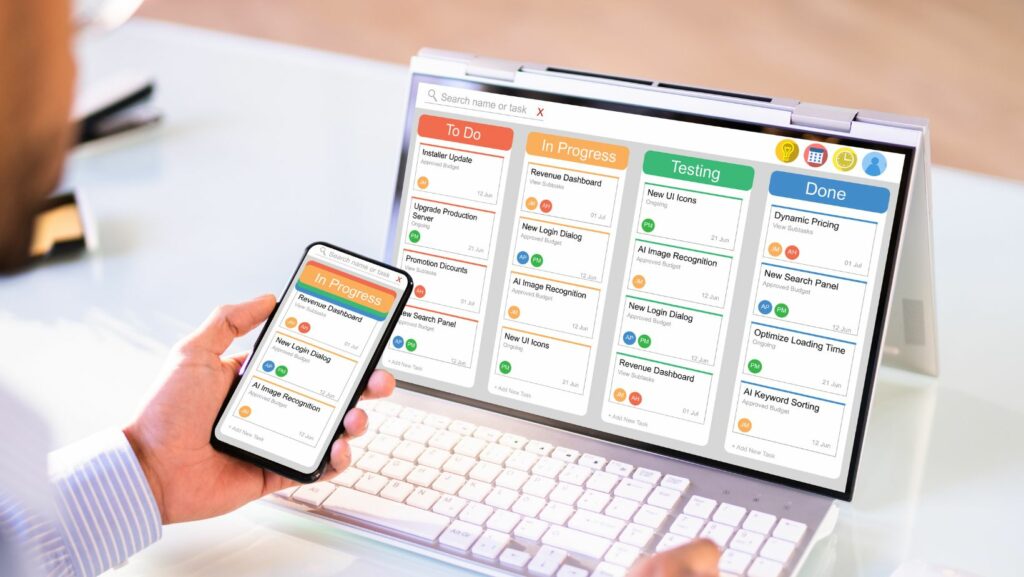Music Management Software
As an expert in music management software, I’ll delve into the key features and benefits of utilizing such tools. Music management software is designed to streamline various aspects of organizing, storing, and accessing music files. These platforms offer functionalities that cater to musicians, producers, DJs, and music enthusiasts alike.

One of the primary advantages of music management software is its ability to efficiently categorize music libraries based on genres, artists, albums, and customizable tags. This organization simplifies searching for specific tracks or creating playlists tailored to different moods or occasions. Additionally, these tools often come equipped with metadata editing capabilities, ensuring that each song is correctly labeled with pertinent information.
Moreover, music management software frequently includes features for analyzing listening habits and generating personalized recommendations. By tracking user preferences and playback history, these programs can suggest new music based on individual tastes. This personalized approach enhances the overall listening experience and introduces users to a broader range of artists and genres they may enjoy.
Understanding Music Management Software
As a music enthusiast, I often find myself overwhelmed by the sheer volume of digital music files scattered across various devices. This is where music management software comes into play, offering a centralized solution to organize, categorize, and manage my extensive music library efficiently.
Imagine having thousands of songs stored on your computer or mobile device without any coherent structure. Without proper organization, finding a specific track or creating playlists can be a daunting task. That’s where music management software proves its worth by providing intuitive tools to tag songs, create playlists based on genres or moods, and even synchronize music across multiple devices seamlessly.

One of the key features of music management software is its ability to automatically retrieve metadata for each song in your collection. From album art to artist information and release dates, this software ensures that your library not only looks visually appealing but also remains well-documented for easy browsing and searching.
Moreover, with the rise of streaming services and digital downloads, compatibility becomes crucial. Modern music management software offers robust integration with popular platforms like Spotify, Apple Music, and Tidal, allowing users to consolidate their offline and online music collections effortlessly.
In essence, music management software serves as a digital curator for your music collection, enabling you to spend less time searching for tracks and more time enjoying them. Whether you’re an avid audiophile or simply someone who loves listening to tunes on the go, investing in quality music management software can significantly enhance your overall listening experience.
Top Music Management Software of 2023
In the dynamic world of music management, having the right software can make a significant difference in efficiency and organization. In 2023, several standout options have emerged that cater to various needs within the industry.
One prominent choice is TrackStack Pro, known for its intuitive interface and robust features tailored for both independent artists and established labels. With tools for cataloging music libraries, scheduling releases, and analyzing streaming data, TrackStack Pro offers a comprehensive solution for managing all aspects of music production.

Another contender in this space is SoundSync Manager, which stands out for its seamless integration with popular streaming platforms and social media networks. Artists appreciate its user-friendly design and real-time collaboration capabilities, making it a top choice for those looking to streamline their promotional efforts.
For those seeking a more specialized approach, BeatMaster Studio has gained traction among producers and DJs for its advanced beat-making functionalities and customizable project templates. Its innovative workflow enhancements have made it a go-to option for professionals looking to elevate their music creation process.
In addition to these leading options, the market also offers niche solutions like GigPlanner Plus, designed specifically for managing live performances, tour schedules, and artist bookings. Its emphasis on simplifying logistical challenges has resonated with touring musicians seeking an all-in-one platform.
Overall, the diverse landscape of music management software in 2023 provides artists, producers, and industry professionals with an array of choices to suit their specific needs. Whether it’s organizing catalogues, promoting releases, refining beats or coordinating live shows, there’s a tool available to help streamline workflows and maximize creative potential.
